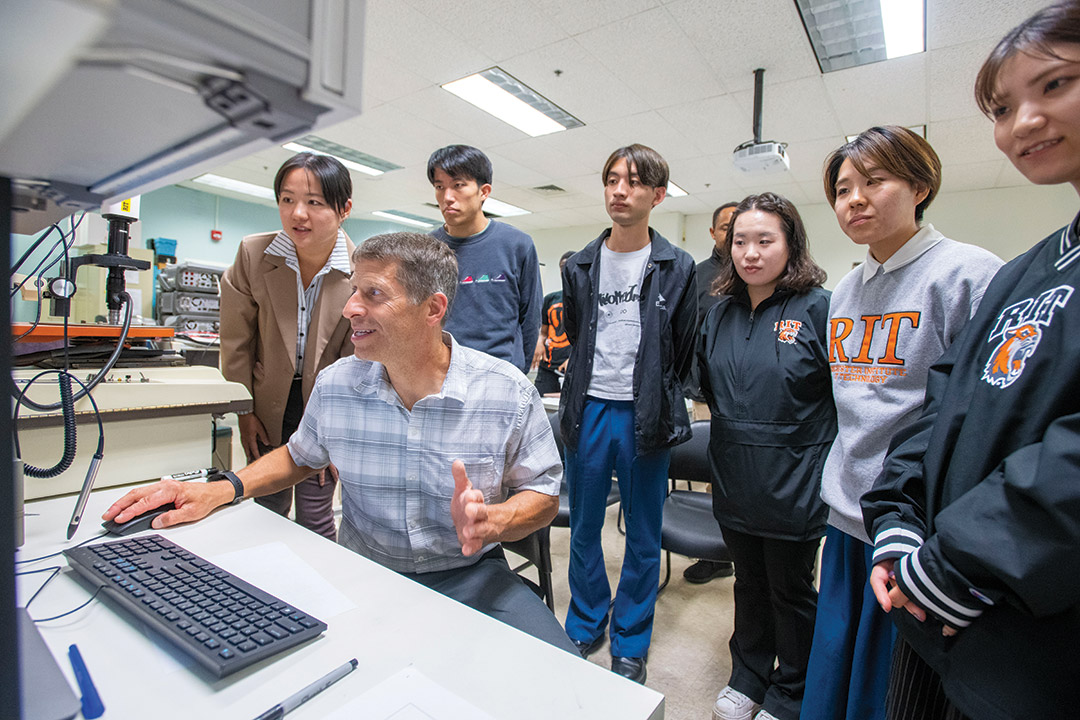Growing collaboration advances semiconductor industry
Carlos Ortiz/RIT
Japanese students from Nagoya University and Kyushu University developed their own solar cells during lab sessions in the Semiconductor Nanofabrication Laboratory when they visited RIT last summer. They were led through testing processes by microelectronic engineering professors Karl Hirschman, seated, and Jing Zhang, far left.
RIT is working to improve competitiveness in computer chip design, development, and manufacturing as part of an international partnership.
Micron Corp., Tokyo Electron Ltd., and the National Science Foundation announced the partnership—the U.S.-Japan University Partnership for Workforce Advancement and Research & Development in Semiconductors (UPWARDS) for the Future—at the 2023 G7 Summit in Japan.
RIT is one of six U.S. universities involved.
With an established microelectronic engineering degree program, one of the first in the country, RIT currently has more than 1,500 alumni working in the semiconductor field. The program blends the theoretical knowledge and hands-on training required to design and build semiconductor chips.
Through the UPWARDS partnership, RIT microelectronic engineering faculty have expanded curriculum development and started research collaborations and faculty-student exchanges, most recently with 24 students and faculty from Nagoya University and Kyushu University.
The group traveled to RIT this past summer for two weeks of activities coordinated by RIT Global and faculty from Kate Gleason College of Engineering.
Students fabricated solar cells and learned about clean- room processes in RIT’s Semiconductor Nanofabrication Laboratory. They also attended research seminars presented by faculty and toured RIT’s AMPrint Center and MAGIC Spell Studios.
Outside of technical sessions, students visited local company Linton Crystal Technologies, where they learned how silicon, the foundational material for semiconductors, is grown, processed, and prepared for today’s electronic devices and systems.
They also toured GlobalFoundries in Albany, N.Y., an international semiconductor fabrication laboratory.
“It was good to hear about how silicon ingots are produced and how they are used in clean rooms,” said Zhang Lin, a graduate student in the electrical, science, and information technology department at Kyushu University.
Karl Hirschman, a professor in the Department of Electrical and Microelectronic Engineering, anticipates a cohort of RIT students will travel to Japan next year.
“The UPWARDS program is going to present fantastic opportunities for faculty and students, both here and in Japan. We are excited about establishing collaborative re- search with our new university partners,” said Hirschman.
The global need for more computer chips and a larger semiconductor workforce was most pronounced during the pandemic with supply chain disruptions. That challenge remains today.
The U.S. invested in education and manufacturing through the CHIPS and Science Act. RIT is now training the next generation of the semiconductor workforce through global connections such as UPWARDS.









